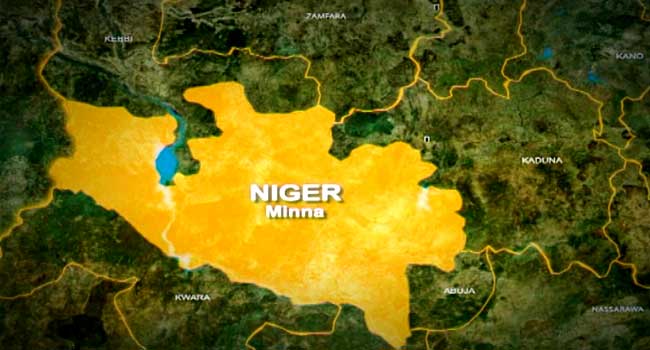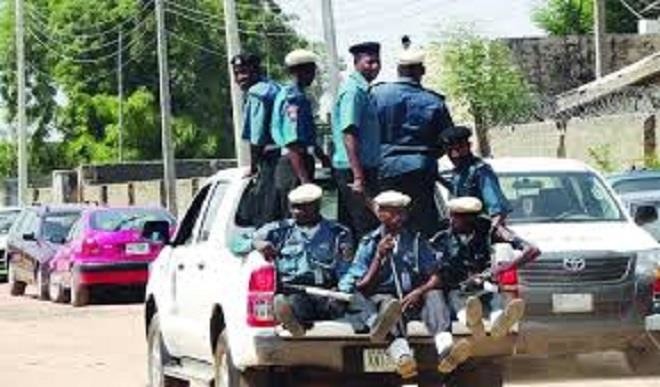Ahead of the 2023 presidential election, the Governor of Central Bank of Nigeria, CBN, Mr. Godwin Emefiele, on Monday, approached the Federal High Court sitting in Abuja, accusing the Independent National Electoral Commission, INEC, of plotting to disqualify him from contesting.
Emefiele, in the suit he filed through his team of lawyers led by Chief Mike Ozekhome, SAN, told the court that both INEC and the Attorney-General of the Federation, AGF, Mr. Abubakar Malami, SAN, are “making frantic efforts” to ensure that he does not participate in the presidential primaries he said has been scheduled for May 30 and June 1.
Consequently, he prayed the court to order INEC and the AGF to maintain status quo ante bellum (allow things to remain the way they are) and not compel him to resign from his position as CBN Governor, until 30 days to the general elections.
He urged the court to, in the interim, restrain the two defendants from taking any step that could push him out of office, pending the determination of the suit.
“My lord, by Wednesday, May 11, 2022, the timeline for collecting the form for expression of interest will expire.
“The timeline for the congresses and conventions of the political parties for the presidential election, which he is interested in, comes up on the 30th of May.
“This motion, is therefore, seeking that the court should grant an order for maintenance of status quo.
“Let my lord not allow anybody to do anything,” Ozekhome pleaded while moving Emefiele’s ex-parte application that was supported with an affidavit of urgency.
“Let my lord not allow anybody to do anything,” Ozekhome pleaded while moving Emefiele’s ex-parte application that was supported with an affidavit of urgency.
READ ALSO: 2023: Court rejects Emefiele’s motion for restraining order against INEC, AGF
Adducing reasons why he would not resign as CBN governor, Emefiele, contended that not being a political appointee, he was not caught up by section 84 (12) of the new Electoral Act, since he is a public servant.
The plaintiff further drew the attention of the court to a subsisting judgement of the Federal High Court in Umuahia, which he said voided section 84 (12) of the Electoral Act, 2022.
He prayed the court to invoke section 318 of the 1999 Constitution, as amended, and bar the defendents from asking him to vacate his office, until 30 days to the presidential election.
Meanwhile, in a bench ruling on Monday, Justice Ahmed Mohammed, rejected Emefiele’s ex-parte application, and directed him to go and put the two defendants on notice and also serve them with all the relevant processes in the matter.
Justice Mohammed ordered the defendants to appear before him on May 12 and show cause why the plaintiff’s prayers should not be granted.
In the substantive suit marked FHC/ABJ/CS/610/2022, Emefiele, is praying the court to declare that he can “validly participate in the primary election of any political party and is entitled to vote and be voted for as candidate of any political party of his choice, for the purpose of the nomination of candidates for the election to the office of President or any other office under the Constitution of the Federal Republic of Nigeria, as amended”.
He wants the court to issue an order, stopping the defendants from stopping or prejudicing him, “from participating, voting or being voted for at the congress or convention of any political party of his choice, for the purpose of the nomination of candidates for the election to the office of President or any other office under the Constitution”.
In his supporting affidavit that was deposed to by one Maliki Sylvanus, Emiefele, told the court that he is aspiring to seek election to the office of the President of Nigeria and participate as a candidate in the upcoming 2023 presidential elections.
He is specifically praying the court to among other things, determine;
“Whether the provisions of section 84(12) of the Electroal Act, 2022, which are inconsistent with the provisions of section 137(1) (g) of the Constitution of the Federal Republic of Nigeria, 1999 (as amended), which have been declared so by a court of competent jurisdiction, can be relied upon by the defendants to disqualify the plaintiff from contesting election to the office of the President of the Federal Republic of Nigeria or from contesting or participating in the parties’ primaries or other convention or congress for the purpose of election to the office of President of the Federal Republic of Nigeria, scheduled for 25th February, 2023”.
He is equally praying the court to also determine, whether by provisions of section 84(3) of the Electoral Act, 2022, “a political party can by its constitiution, guidelines or rules, impose any nomination qualification or disqualification criteria measure, conditions on any aspirant or candidate including the Plaintiff herein, in its primaries or constitution, guidelines or rules for nomination of its candidates for election besides those criteria as prescribed under section 65, 66, 1067, 107, 131, 137, 177 and 187 of the Constitution of the Federal Republic of Nigeria, 1999 (as amended)”.
As well as; “Whether by the combined effect of the provisions of section 84(3) of the Electoral Act, 2022, and section 137(1) (g) of the Constitution of the Federal Republic of Nigeria 1999 (as amended) which require a public officer toresign, withdraw or retire from his employment at least 30 days before the date of the presidential election, the plaintiff can be mandated and/or compelled to resign, withdraw or retire his position as the Governor of Central Bank of Nigeria earlier than 30 days to the political party primary or Presidential election as prescribed by section 137 (10 (g) Constitution of Federal Republic of Nigeria, which Presidential election is scheduled to take place about February 2023, while the primaries are fixed for 30th May and 1st June, 2022”.
The plaintiff futher wants the court to determine whether by provision of section 137(I) (g) and 318 of the 1999 Constitution, as amended, he could be regarded as a political appointee within the meaning and intendment of section 84(12) of the Electoral Act, 2022.







